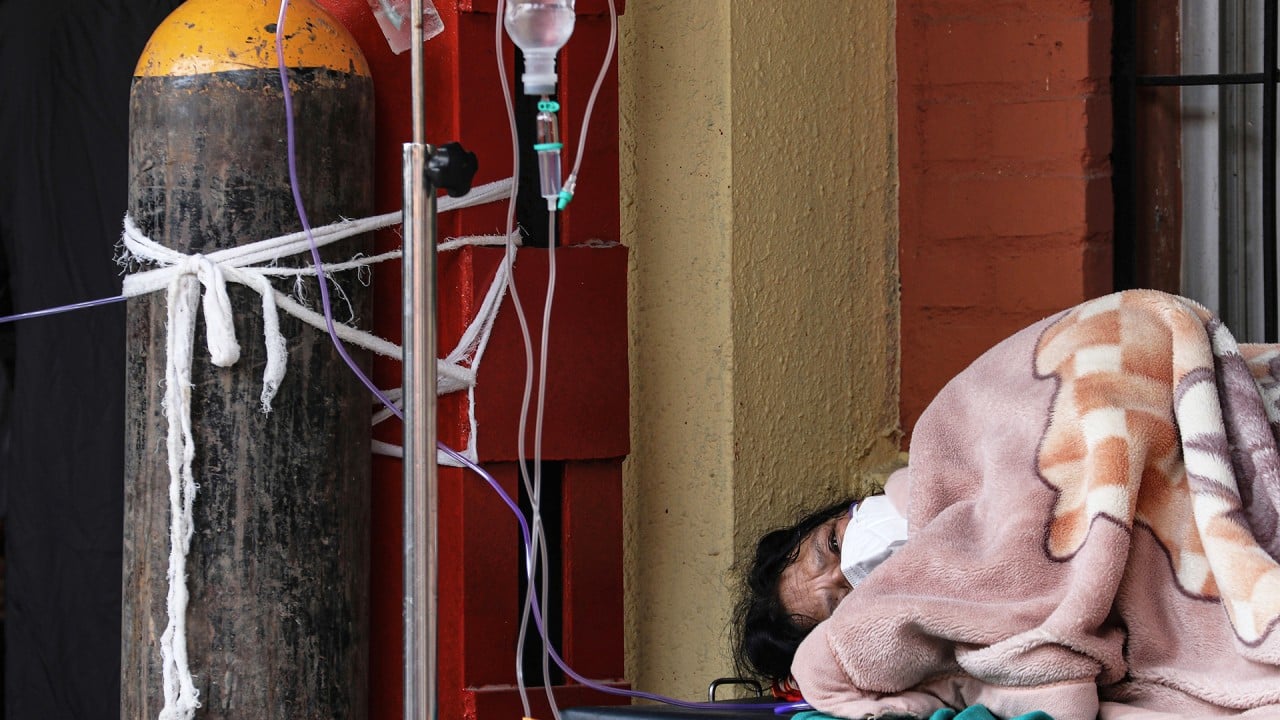
Pfizer vaccine stands up well against Covid-19 variants, Qatar study finds
- Real-world data suggests the jabs can prevent severe cases in infections caused by two strains of the virus
- Efficacy against disease about 20 percentage points lower for a variant compared to original new coronavirus, researchers find
Fosun unit, BioNTech to form joint venture to make Covid-19 vaccine
Scientists supported by Qatar’s public health ministry conducted the analysis as two more transmissible strains of the virus were gaining a foothold in the country – the variant known as B.1.1.7, first identified in Britain, and B.1.351, in South Africa.
According to the results, the Pfizer-BioNTech vaccine’s effectiveness against severe or fatal cases of Covid-19 was very high – at 97.4 per cent – at a time when both strains were dominant. When it came to protecting against any documented infection from the B.1.351 variant, it was found to be just 75 per cent effective – roughly 20 percentage points lower than previous results which were not specific to this strain.
In clinical trials conducted before the variants began circulating, the Pfizer-BioNTech dose was found to be 95 per cent effective in preventing Covid-19. These findings were supported by a real-world study in Israel, which found the vaccine to be 92 per cent effective against documented infection.
Several studies have pointed to the potential for B.1.351, which contains a mutation to the part of the virus targeted by vaccines, to affect how well the jabs work.
Doses by Johnson & Johnson and AstraZeneca were found to be less effective against mild and moderate Covid-19 in clinical trials in South Africa, where the variant was spreading, compared with those run at other trial sites. But there was a minimal difference when it came to protecting against severe disease for the Johnson & Johnson vaccine. Similar data was not available for AstraZeneca.
The latest data from Qatar appears to support scientists’ expectations that protection against severe cases or death would remain high against variants of the virus, even if vaccine efficacy for all infections was affected.
“The reduced protection against infection with the B.1.351 variant did not seem to translate into poor protection against the most severe forms of infection [such as] those resulting in hospitalisation or death, which was robust,” the researchers wrote.
They added that the vaccine was effective overall against infection and disease in Qatar, despite the strains being predominant there.
The researchers found a lesser decrease in efficacy for the B.1.1.7 strain, with estimated effectiveness of the vaccine against any documented infection at 89.5 per cent.
They also noted how many cases had been detected in vaccinated people, known as breakthrough infections. As of March 31, there were 6,689 infections among people who had received one dose of the vaccine, and 1,616 infections in those who had received two doses. Those who have only received the first dose are not considered fully protected.

03:12
‘India is a horrifying preview,’ says Red Cross as Nepal’s Covid-19 cases rise
The findings were more limited when it came to deaths from Covid-19 infection. Seven deaths were recorded among vaccinated people – five after the first dose and two after the second.
By March 31, when the study ended, 385,853 people in Qatar had received at least one vaccine dose and 265,410 had completed two doses.
According to Our World in Data, run by the University of Oxford in Britain, there have been more than 210,000 cases overall in Qatar and around 500 deaths. New daily cases have been on the decline since mid-April, after increasing for several weeks earlier this year, with around 38 per cent of the population now having received at least one dose of a vaccine.

